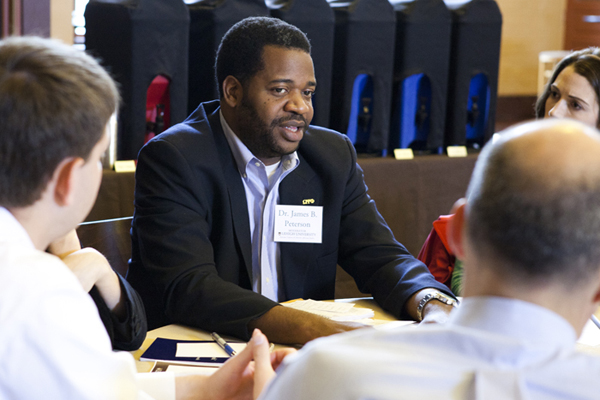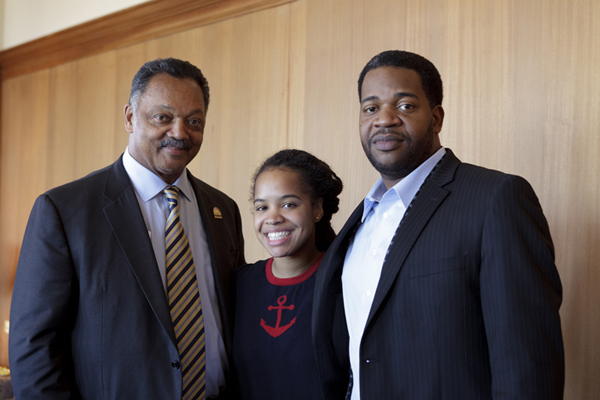Peterson discusses media and scholarship
If you’ve tuned into MSNBC lately, there’s a good chance you’ve seen James Braxton Peterson.
Peterson is the director of Africana Studies and associate professor of English, and his scholarship pertains to several topics. His courses include “Comedic Narratives in African American Literature and Culture,” “Me, Myself & I: Autobiography in Hip Hop Culture,” and “Race, Gender and Ethnicity in the Graphic Novel.”
Since joining the faculty in 2011 as part of Lehigh’s cluster initiative, Peterson has filled one of three additional positions awarded to the Africana Studies cluster.
He has been invited frequently to appear on MSNBC and other TV networks and to write for websites. Peterson recently appeared on Hardball with Chris Matthews for a segment built around “Behind Electoral Geography, the Secessionists’ Delusion,”a piece he wrote for The Daily Beast, where he is a regular contributor. He has appeared on ESPN’s Outside the Lines, CNN, CBS News, BET and Fox News, and he is a Huffington Post blogger.
Peterson is also the founder of Hip Hop Scholars, LLC, whose aim is to develop the educational potential in hip hop, urban and youth cultures.
In an interview with University Communications, Peterson spoke about his plans at Lehigh, his work in the media and his scholarship.
What excites you about the future of the Africana Studies program?
James Peterson: We hired Kwame Essien, an African historian, last year, and the candidates in our pool for this year are extraordinary. I’m very excited to be in a place that has expressed institutional support for Africana Studies, and where faculty, administrators and staff support my kind of scholarship.
Lehigh happens to be an exquisite location. There are many days when I start off at home in Philadelphia, work here during the day and do media in New York at night. Regionally, Lehigh is a great fit.
How did you initially become involved in media?
Peterson: Unbeknownst to me, I was really well trained for this kind of work through graduate school, giving presentations, doing interviews and working with students. You don’t think about it this way as a scholar, but being a professionally active, student-engaged professor is exceptional preparation for media.
Doing TV media requires being able to think quickly on your feet and be insightful in a very short order, without knowing the direction of the conversation. Most professors who can conduct a good seminar are going to be exceptional at doing this.
How does social media play a role in what you do?
Peterson: When you’re a scholar, when you write a book or a journal article, a very select group of people will read that article. If you’re really good, maybe 100 people will read it. I’m interested in communicating with more people than that, in terms of my scholarship and my activism in the community.
Faculty shouldn’t allow perceptions of social media to determine the value of it, because a lot of us see people playing around on it. It is a very serious platform, with the capacity to shape revolutions, and circulate ideology quicker than anything else we know.
What has influenced your scholarship over the years?
Peterson: I studied with a great sociolinguist, Walt Wolfram at North Carolina State University, and he taught me the value of black speech. Understanding that black vernacular speech was systematic, and understanding its historical roots and cultural impact on everything Americana was so inspiring to me as a scholar. It’s what created space for me to say that hip hop belongs in this space as well.
Posted on:



